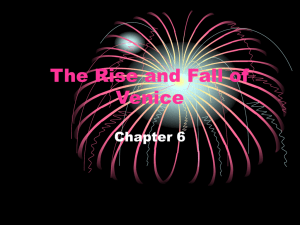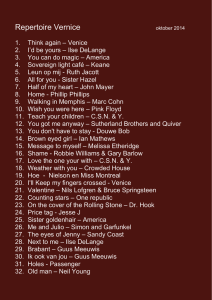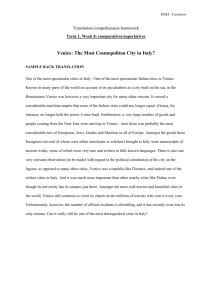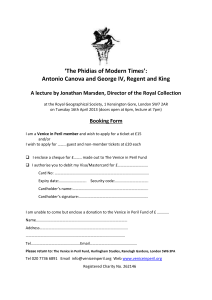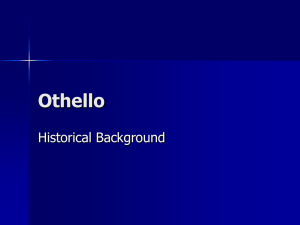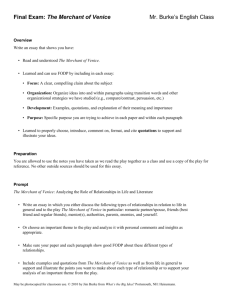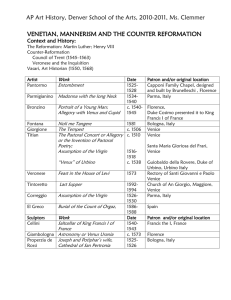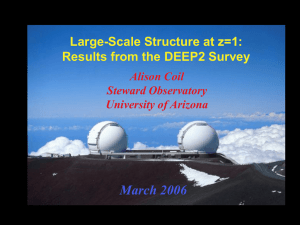ppt - A century of cosmology
advertisement
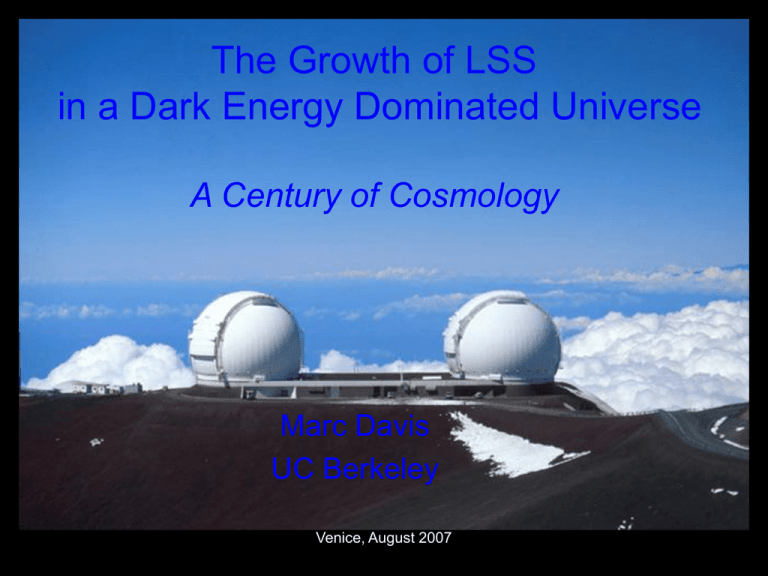
The Growth of LSS in a Dark Energy Dominated Universe A Century of Cosmology Marc Davis UC Berkeley Venice, August 2007 DEEP2 pre-selects high-z galaxies using observed colors Venice, August 2007 DEEP2 mask selection Targeted galaxies are enclosed with white curves Solid slits are objects selected on a given mask. dotted and dashed lines are galaxies from neighboring masks. DEEP2 slitmask spectroscopy l position Using custom-milled slitmasks with DEIMOS we obtained spectra of ~150 targets at a time. A total of 400 slitmasks was required for the survey; we tilted slits up to 30 degrees to obtain rotation curves. Venice, August 2007 A Redshift Survey at z=1: • 3 sq. degrees • 4 fields (0.5o x <2o) • 80 Keck nights, one-hour exposures to RAB=24.1 • primarily z~0.75-1.4 (pre-selected using BRI photometry) • 46,585 unique redshifts, error ~30 km/s • ~5·106 h-3 Mpc3 • 1200 l/mm: ~6500-9200 Å • 1.0” slit: FWHM 68 km/s • z=0.7-1.4 spans lookback time ~6.0 - 8.0 Gyr ago • Within DEEP2 we are surveying 2.5 Gyr or ~20% of the history of the Universe, and SDSS/2dF comparisons give ~3x this baseline Venice, August 2007 Redshift Distribution of DEEP2 Survey Venice, August 2007 DEEP2 Status Update • DEEP2 began observations in July 2002. • Observations are now >95% finished, with >49k spectra in hand and 3 of 4 fields completed. • Follow-up observations have begun. •ALL the data is already public: http://deep.berkeley.edu/DR3 • The catalog and 2d spectra is all available, and others are releasing Chandra, Spitzer, HST, …. Venice, August 2007 Cluster abundance depends on cosmology CDM CDM =1 =0.3, =0.7 o 1015 Mo * 10 14.5-15Mo . 1014-14.5 Mo Hubble volume simulations Brian F. Gerke Evrard et al. 02 13 2PIGG:Ek e et al 2004 Redshift Maps in 4 Fields: z=0.7-1.3 Cone diagram of 1/12 of the full DEEP2 sample Venice, August 2007 Galaxy groups in DEEP2 •Overdensities identified in redshift space. •Use the VDM algorithm of Marinoni et al. (2002). position l, z •Group in early DEEP2 data s~250 km/sec Venice, August 2007 DEEP2 Group Catalog Groups with >350 km/s Shown are groups for 3 fields --length of ellipse proportional to velocity dispersion Venice, August 2007 Gerke et al. 2005, astro-ph/0410721 Real Groups/Mock Groups galaxies shown in 3 projections x-r redshift plot y-r redshift plot Real or Mock??? X-y projected on sky Venice, August 2007 Why search for groups in DEEP2? •Apparent abundance of groups: dN(,z)/dzd Provides a useful test of dark energy eq. of state (Newman et al, 2002) •differences in the volume element varies by 3x between w=0 and w=-1 •For groups of modest-mass, the evolution of dispersion is 2nd order •Heavy black curve is T=.3 DEIMOS took ~7 years to build; at time of designing science expt. T was still undetermined, and DE was not discussed. Size of the Universe versus w Abundance versus Redshift Gerke etal 2008 Simulated Data!! Measured dispersion with galaxies compared to reality -- tremendous scatter! Dispersion with galaxies Venice, August 2007 We can reconstruct the quantity we need with the VDM Successful above ~350 km/s • We want to measure N(σ, z) to constrain cosmology. • Tests on the mock catalogs indicate that we can measure N(σ,z) in DEEP2 accurately for σ>350 km/s. Venice, August 2007 Brian F. Gerke Projected constraints Computed with DM halos in simulated DEEP2 and 2dF light cones, constructed from the Millennium Run. input cosmology Venice, August 2007 Brian F. Gerke In each panel, the suppressed parameter is held fixed. DEEP2 Cluster Counts •DEEP2 survey counted ~300 groups •Velocity dispersion measured in each case •Counts of N(, z) is a strong test of w •Have not got mock catalogs with the evolving color selection, making it difficult to proceed •B. Gerke will have results out “soon” Measuring Kaiser infall in (rp,) et al, 2008 •The blue galaxies show fully developed coherentCoil infall pattern on scales >5 Mpc, as expected. •The red galaxies have very extended fingers of god, as expected. Kaiser infall, MOCKS Coil et al, 2008 Millenium mocks, not a bad approximation Conclusions on DEEP2 • DEEP2 observations are >99% done •Work not yet published is study of galaxy clustering • DR3 has occurred this August: http://deep.berkeley.edu/DR3 • AEGIS ApJL special issue • Way too many new results to cover in one talk! Venice, August 2007 By combining area with depth, AEGIS allows us to study rare objects in detail… B. Gerke, JN et al. 2006, AEGIS ApJL, Accepted Venice, August 2007 Like a spectroscopically identified, dual AGN at z=0.7 Hb [OIII] 5007 position [OIII] 4959 Venice, August 2007 l/ z HST reveals a fairly-normal early-type host Venice, August 2007
